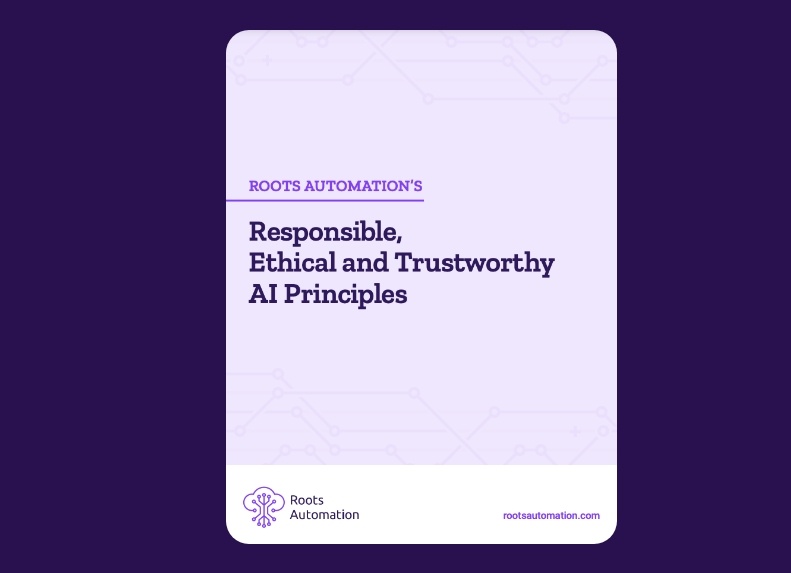Responsible AI for Insurance
Responsible AI
Ensuring Fair, Transparent, & Accountable AI in Insurance Operations
Insurers are committed to making claims and underwriting decisions are fact-based, fair, and unbiased. As insurers integrate Artificial Intelligence capabilities into their business operations, it is critical to verify that these systems do not introduce bias or black box decision-making that violates regulatory and compliance requirements.
Roots' ethical AI methodology is based on eight key concepts ensuring responsible and trustworthy AI-- principles that prioritize transparency, accountability, and security.
This framework encourages explicit explanations for AI decisions, protects user data, and emphasizes dependable models with continual improvement and human-AI collaboration.
8 Core Principles for Responsible and Ethical AI
Roots was developed by experienced insurance operators, and our technology helps humans make better underwriting or claims decisions. We extensively constantly evaluate our InsurGPT™ model to ensure that it does not hallucinate and responds based solely on the documents presented. Once in production, we monitor models in real time to detect and fix anomalies, errors, or model drift as they occur.
TRUST CENTER
Secure & Compliant
Committed to data security and compliance, Roots meets ISO 27001, SOC 2 Type 2, HIPAA, CCPA compliance requirements and more.






Download Responsible, Ethical and Trustworthy AI Principles
Download Roots' Responsible, Ethical and Trustworthy AI Principles




